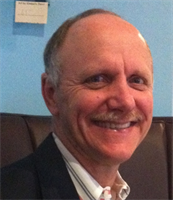Here is an interview with Bob Kenley from Purdue University which talks about his experience and perspective as a faculty of the academic equivalency program. Happy SEPtember!

This interview was done in 2022.
Q2. What is one of your proudest professional achievements?
» A three-semester sequence of student projects supporting the INCOSE Professional Development portal: (1) an undergrad Industrial Engineering senior design project that developed a proof of concept, (2) an MBA project that investigated market feasibility, and (3) an undergrad Computer Graphics Technology senior design project that developed a prototype.
Q3. What skills do you think a systems engineer should develop during their education?
» We prefer to think more along the lines of higher-level learning objectives rather than skills. Understanding various quantitative and qualitative approaches to systems engineering, with case studies, concepts, and readings to support interdisciplinary project work. Developing patterns of systems thinking, understanding systems engineering processes and methods, understanding the theory for model-based systems engineering, and using a model-based systems engineering tool. How to apply multiple systems concepts and methods. Performing critical thinking about how the concepts and methods are applicable to the problematic situations of real-world projects and how well the project teams are able to perform the required activities.
Q4. What was your university’s motivation behind joining the academic equivalency program?
» Industrial partners for our online program were seeking an academic equivalence course for their employees.
Q5. What do you see as the benefits of the academic equivalency program for a university and a student?
» For the university, it can lead to a broader set of industrial partners. For the students, it can lead to a greater understanding of what is really needed to become a certified systems engineering professional as well as learning the knowledge that is in the Handbook.
Q6. What methods do you use to teach SE courses effectively?
» Lectures on the Handbook and the INCOSE Competency Framework, readings based on the lectures, and quizzes. Online discussion forums about certification and about professional competencies. Writing assignments that critique the literature in the field, e.g. papers from Systems Engineering and the International Symposium.
Q7. How do your SE courses help students to deepen their understanding of systems engineering?
» We cover multiple scientific frameworks, methodologies, and application domains that give student different perspectives that include “traditional” systems engineering and other approaches to the engineering of systems.
Q8. How do your SE courses differ from those at other universities?
» Purdue Systems Collaboratory offers a Graduate Certificate in Systems that is a 9-credit hour program designed for students and professionals across all majors who want to gain understanding and practical skills in systems thinking, systems science, and systems engineering. The Certificate program is a response to the need for a new generation of leaders with holistic perspective, who can address the most challenging and complex problems of today’s societies. Also, we offer a 100% online, 30-credit hour systems engineering (SYS) concentration packed in our Interdisciplinary Master of Science in Engineering (MSE)/Master of Science (MS) degree. This program was created for professionals who wish to build a competitive edge with graduate-level knowledge of systems engineering, from which they will be able to apply state-of-the art methods in designing, analyzing, and controlling the next generation of complex systems that respond to rapidly changing environments. The concentration aims to develop professionals who are both well-grounded in interdisciplinary engineering as well as prepared to create and execute trans-disciplinary processes that result in engineered systems that are responsive to stakeholders' needs. Application areas include next-generation air traffic management, sustainable buildings, intelligent healthcare devices, healthcare delivery systems, flexible manufacturing integrated with design, next generation transportation systems, and next generation intelligent systems.
Q9. What is your advice for universities or institutes considering applying for academic equivalency?
» Keep it to one course. Do not limit the course to testing knowledge of the Handbook. The students will be happier that they learned more, and your colleagues will be happier that the course goes beyond rote memorization and is truly worthy of being treated as a graduate-level course.
Q10. How can we reach out to you?
» You can reach me at: https://www.linkedin.com/in/prof-kenley/
Know more about academic equivalency from here.